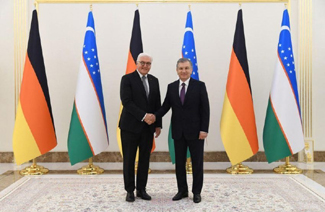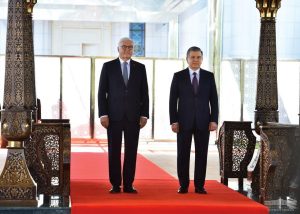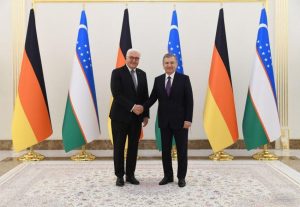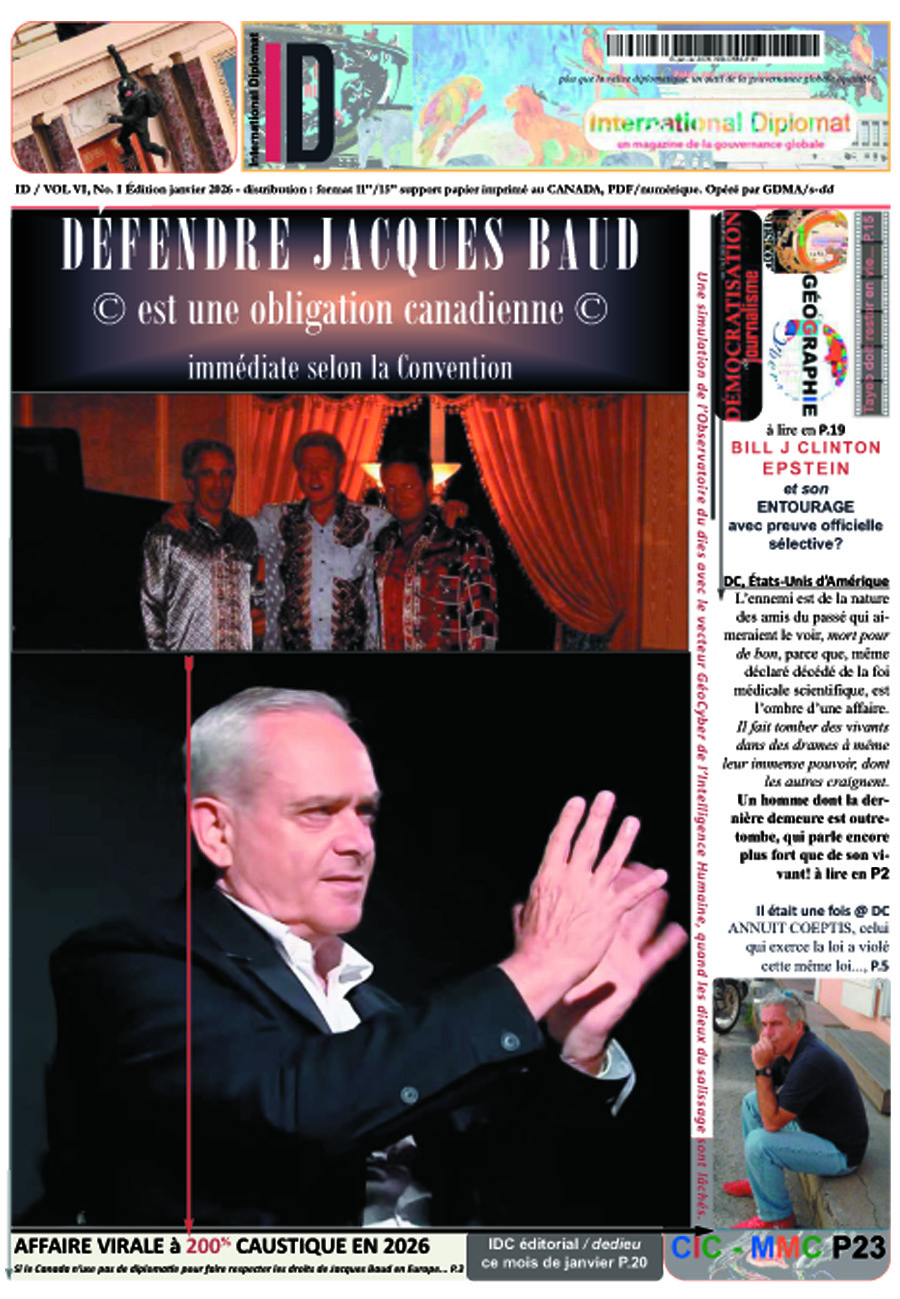
« UZBEKISTAN’S STRATEGIC PARTNERSHIP WITH GERMANY: PAST ACHIEVEMENTS AND FUTURE PROSPECTS »
The President of the Republic of Uzbekistan, President Mirziyoyev, is visiting Germany from September 28th to September 30th at the invitation of Federal Chancellor Olaf Scholz. This visit marks his second trip to Germany this year. In May, Federal President Frank-Walter Steinmeier extended an invitation to Mr. Mirziyoyev for a two-day visit to Berlin.
During the visit, President Mirziyoyev engaged in discussions with Chancellor Scholz regarding the potential expansion of multifaceted relations, emphasizing Germany’s pivotal role as a « reliable and strategic » partner. Subsequently, following a joint business forum, both nations reached agreements totaling $9 billion. These agreements encompass critical sectors for Uzbekistan, including green energy, pharmaceuticals, transportation infrastructure, and agricultural digitalization. The visit will serve as a continuation of the previous working visit, focusing on the implementation of these agreements. Furthermore, it will explore opportunities for close cooperation with prominent German companies and banks in terms of investment and technology.
Before discussing the significance of this visit, it is important to consider how Uzbekistan, under the leadership of President Mirziyoyev, has conveyed a clear message to the world amidst ongoing geopolitical turbulence. Since he took office, President Mirziyoyev has reevaluated both domestic and international policies, placing human dignity at their core. Notably, his development programs, namely the « Strategy of Actions for 2017-2021 » and the « Development Strategy for 2022-2026, » have solidified his legitimacy. In the beginning of his presidency, many experts questioned whether he would follow in the footsteps of his predecessor, Islam Karimov, and become an authoritarian leader. However, his political success has not been rooted in Soviet-style governance or a one-man rule tradition. It would not be an exaggeration to state that from the moment he assumed office, he demonstrated unwavering determination and commitment relied on his political experience. He adeptly resolved conflicts with neighboring nations, shaping his foreign policy around liberal and constructivist principles, departing from the previously prevalent economic realism and mercantilism.
Uzbekistan has effectively pursued a multi-vector diplomacy strategy in recent years, maintaining positive relations with both the « West » and « East. » This diplomatic approach becomes evident when observing Uzbekistan’s stance in the aftermath of the Ukraine crisis, where it firmly aligns itself with the principles and norms upheld by the United Nations (UN). High-ranking Uzbek officials have astutely recognized the evolving dynamics of the international system, with a growing emphasis on Asia, including Central Asia, in the near future. In response, President Mirziyoyev has articulated his intention to diversify the country’s foreign policy. For instance, he aims to elevate relations with the United States (U.S.) and the European Union (EU) to new levels. A similar trajectory can be expected in Uzbekistan’s relations with Germany.
By experts’ opinions, Germany holds a pivotal role in realizing Uzbekistan’s future aspirations. Firstly, Chancellor Scholz has already demonstrated Germany’s willingness to assist Uzbekistan in its membership towards World Trade Organization membership and achieving the signing of the Enhanced Partnership and Cooperation Agreement with the European Union (EU). Furthermore, Uzbekistan has the potential to secure financial support through the EU’s Global Gateway Initiative, which can facilitate the modernization of its infrastructure. It is no secret that regional infrastructure development projects are one of the priority objectives of the EU foreign policy.
Another promising area for collaboration is in the realm of human rights and political freedoms. Engaging in consultations with Germany could greatly contribute to enhancing Uzbekistan’s legal system and strengthening human rights protections, bringing them in line with international standards. In essence, Germany stands as a potential partner for Uzbekistan in realizing President Mirziyoyev’s vision for a New Uzbekistan.
It is worth noting the previous criticism by Human Rights Watch regarding Uzbekistan’s human rights record following President Mirziyoyev’s visit to Berlin in 2019. During that time, Hugh Williamson, Director of Human Rights Watch Europe and Central Asia division, raised concerns about politically motivated charges and pressure on civil society. Since then, the current administration has taken significant steps to modernize the political system, including the decentralization of power to local levels and the release of political prisoners, deviating from the traditional post-Soviet state approach. Uzbekistan’s actions serve as a testament to its commitment to building a free and democratic society, establishing itself as a credible partner.
Uzbekistan continues to navigate the complexities of the evolving international landscape, its partnership with Germany serves as a promising partner for achieving its ambitious goals. President Mirziyoyev’s vision for a New Uzbekistan stands on solid ground, with Germany playing a pivotal role in its realization. Sustaining collaboration through consultative meetings and high-level engagement serves as the foundation for regional development. The results of such efforts will undoubtedly shape the future political landscape, as nations unite to address common threats and challenges.
- Uzbek-German
- Cooperation







